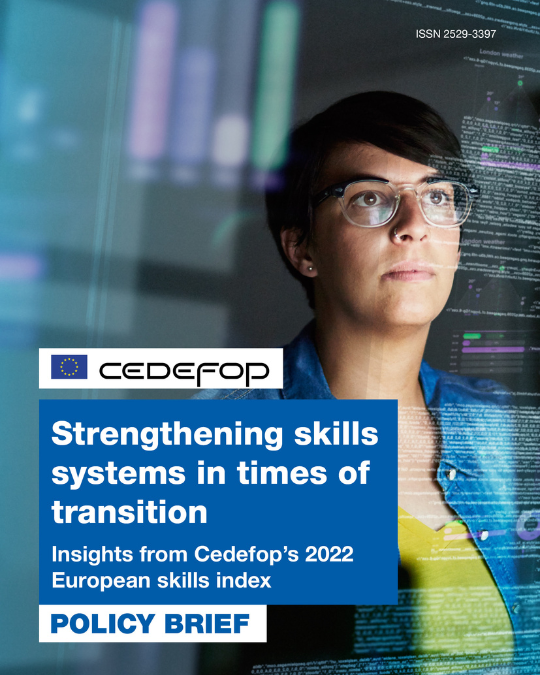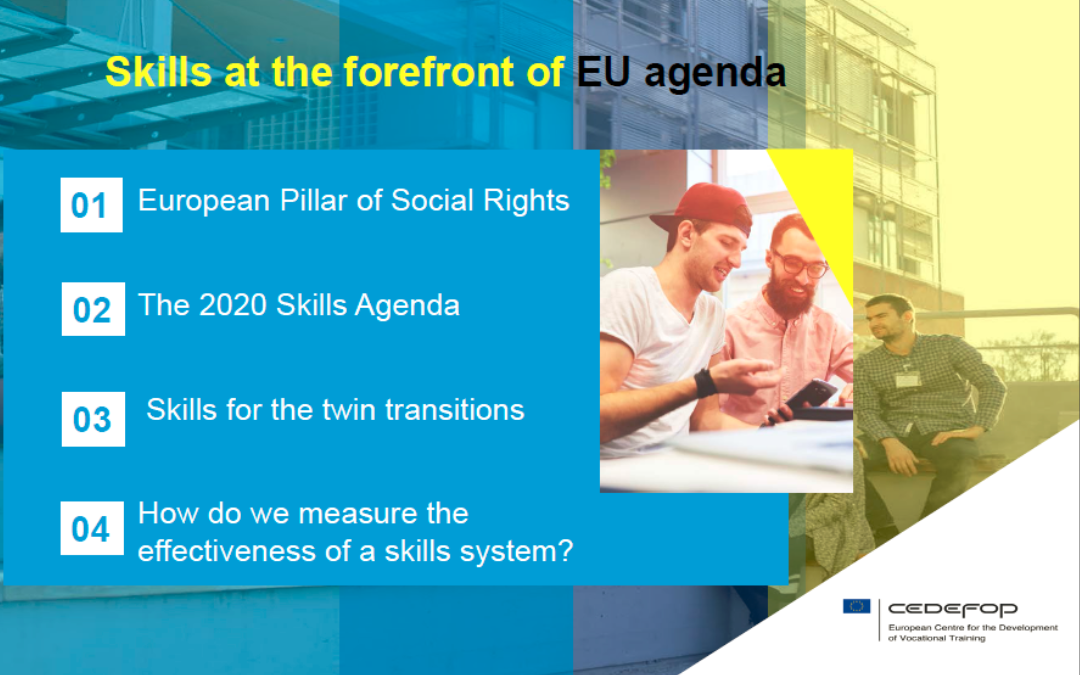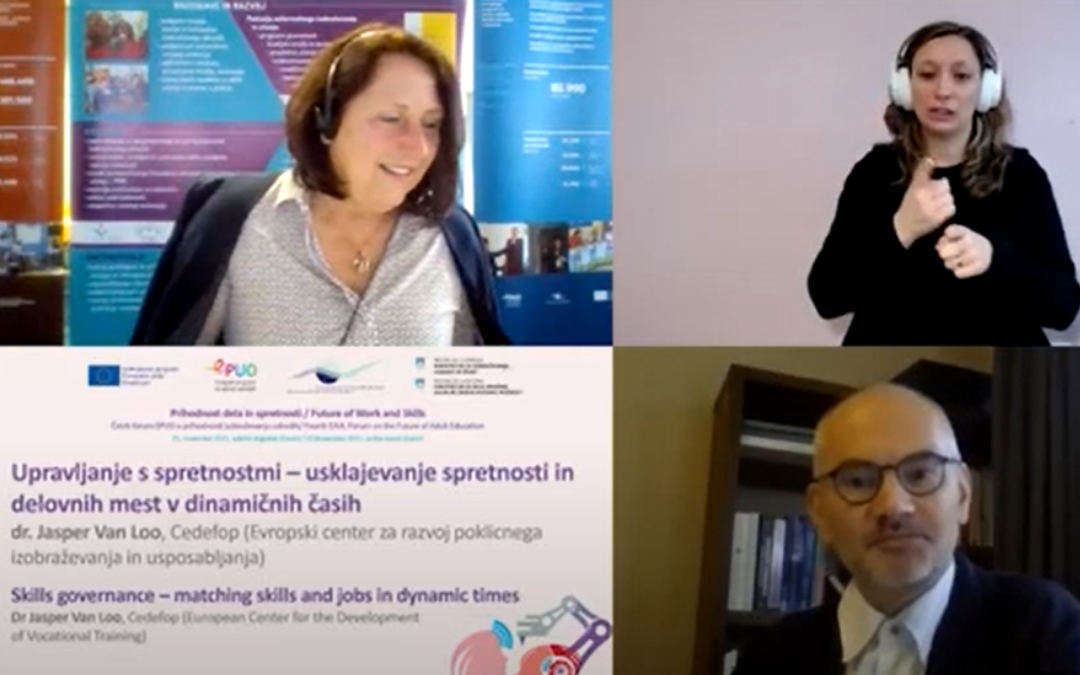Digitalisation and other forms of technological progress are increasingly affecting our life and work. Regardless of age and life circumstances, each of us must develop new and strengthen already acquired skills, or we quickly find ourselves lagging behind the prevailing socio-economic currents. These lead to the abandonment of some professions and the emergence of new ones. Forecasting the needs for knowledge and skills as well as their governance in ever-changing circumstances are critical conditions for success – at the level of the individual as well as society.
At last year’s EAAL Forum on the Future of Work and Skills, the efforts of the MLFSA in cooperation with Cedefop to establish a platform in Slovenia that would enable better monitoring, understanding and skills forecasting in the labour market and match those skills were presented. The platform would be, of course, closely related to lifelong learning. More information about the forum’s findings is available in the Manifesto for the Future of Work and Skills.
As part of the cooperation mentioned above, in 2021, at the first workshop, Cedefop presented guidelines for establishing such a national platform based on the examples of some EU members, e.g. Slovakia. The second meeting addressed two topics: (1) what can be expected from long-term skills forecasting and what limitations should be considered, and (2) how to ensure trust in the platform and what is the role of partners and stakeholders.
This year, on 4 July, the Slovenian MLFSA and Cedefop organised the third and last workshop. It was entitled Strengthening Skills Governance in Slovenia to Navigate Change and Manage Transitions.
The purpose of the meeting, which mainly gathered stakeholders from the work and education area, was to define their role in providing, disseminating and using skills intelligence. Cedefop defines the latter as knowledge and understanding based on an expert-driven process of identifying, analysing, synthesising and presenting quantitative and/or qualitative skills and labour market information. The acquired knowledge can be the basis for shaping various policies and investments aimed at implementing the country’s socio-economic priorities. But, as Dr Jasper van Loo from Cedefop pointed out, everything depends on national peculiarities and the country’s flexibility in overcoming discrepancies and inefficient coordination of key stakeholders.
The fact is that there are many sources of information, as well as tools for processing them.
For reliable skills intelligence, the best resources and tools must be used, as well as combined and upgraded when appropriate. However, it serves to be cautious, as numbers can quickly lead us to conclusions that do not correspond to the actual situation. Precisely that is what the participants thought when Dr Ilias Livanos from Cedefop presented the ESI study and focused on the trends and results for Slovenia.
ESI refers to the so-called composite indicator consisting of 15 indicators concerning the development, activation and matching of skills (with the labour market needs). The results for Slovenia show a relatively balanced, even positive picture, but according to the participants, they offer some claims that are at odds with reality. For example, there is no mismatch between supply and demand for skills (source: ESI); however, that is a problem in Slovenia (source: profession and practice).
Cedefop developed the ESI methodology for more than five years before presenting it to the public for the first time three years ago. Therefore, both of their representatives warned that when interpreting the indicators, we should consider the in-depth national situation. ESI should be perceived only as a starting point for the national discussion of stakeholders from different sectors, especially since they are an essential source of additional information!

However, the comparative value of this study (available here) should not be neglected, as it gives us a sense of our position in the EU.
Awareness-raising among all involved is essential.
At the July workshop, we discussed, among other things, how to increase the effectiveness of the mutual connection between the work and education sectors. We spoke about ensuring that skills intelligence would also be the basis for creating other policies, such as the green and digital transition, active ageing, innovation and entrepreneurship, demographic policy, etc. The third challenge for us was how to use skills intelligence to reach and engage labour market actors (employers, employees and others) in dialogue, meet their needs and facilitate their decision-making and actions – for example, in designing the vocational education and training system.
The participants supported the importance of more appropriate skills intelligence, which should be based on quality data. We also advocated for greater cross-sectoral cooperation so that data sources and their use would be transversal.
In conclusion, any further work to establish a platform for monitoring, understanding and skills forecasting depends on the political decisions of the new Slovenian government. We can only hope that the invested two-year effort will not remain without implementation.
Zvonka Pangerc Pahernik, MSc (zvonka.pangerc@acs.si), SIAE


